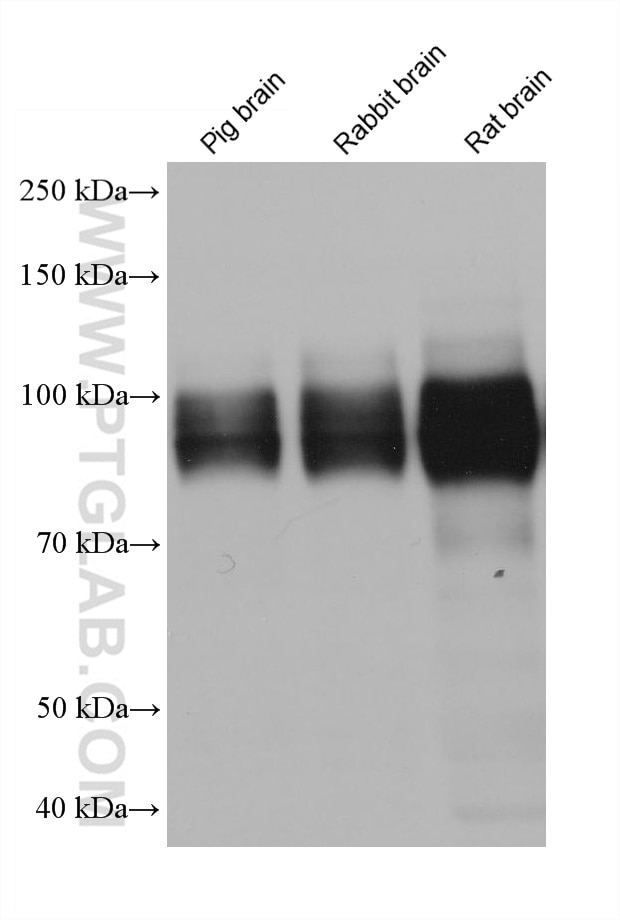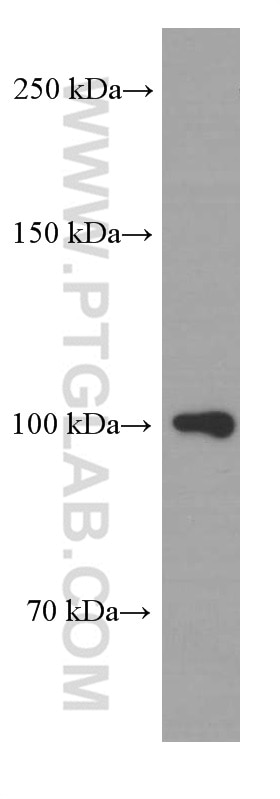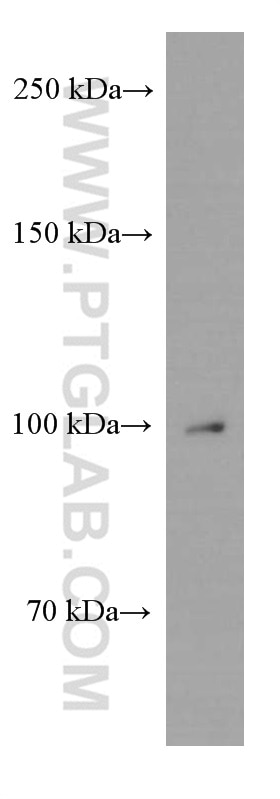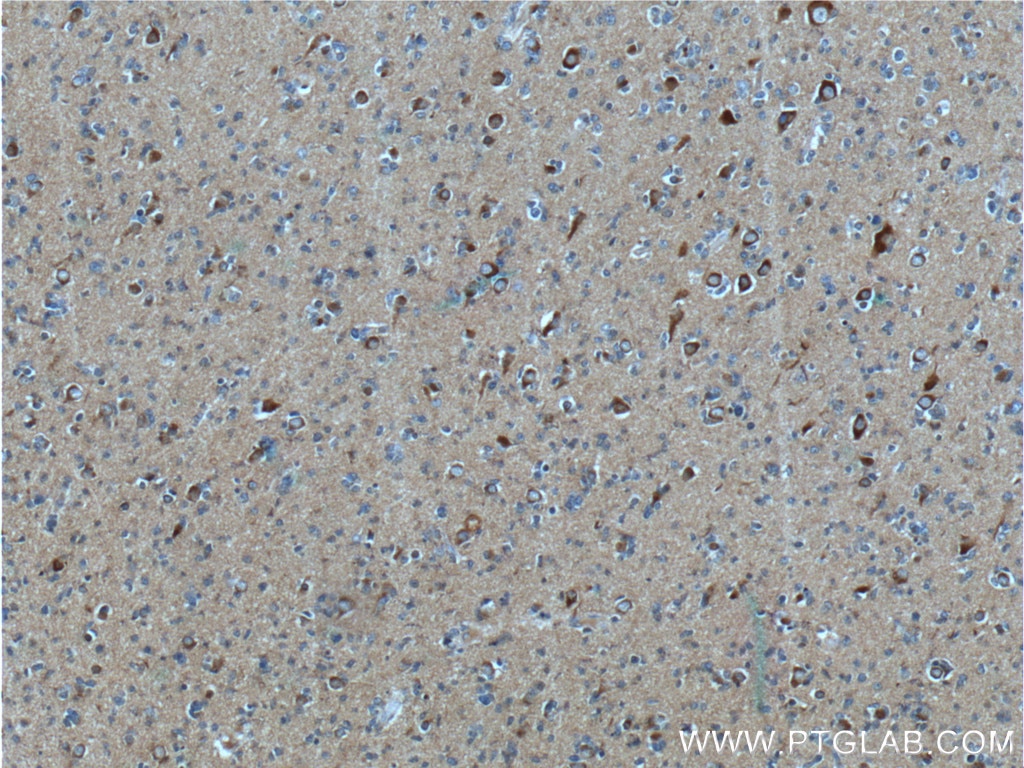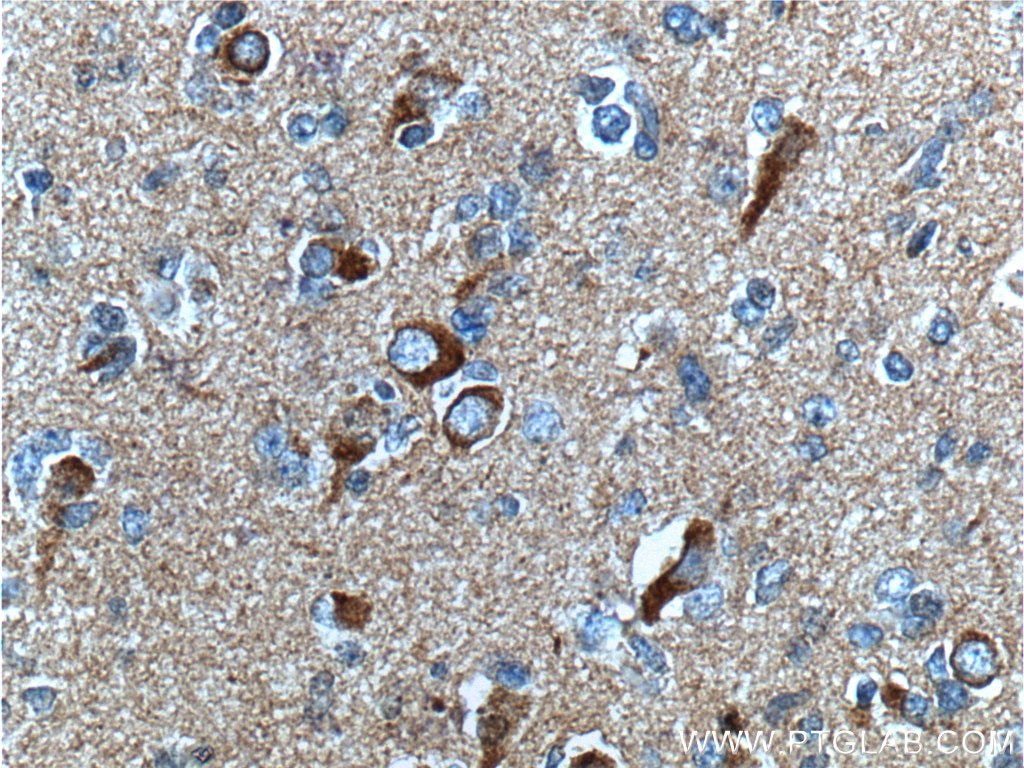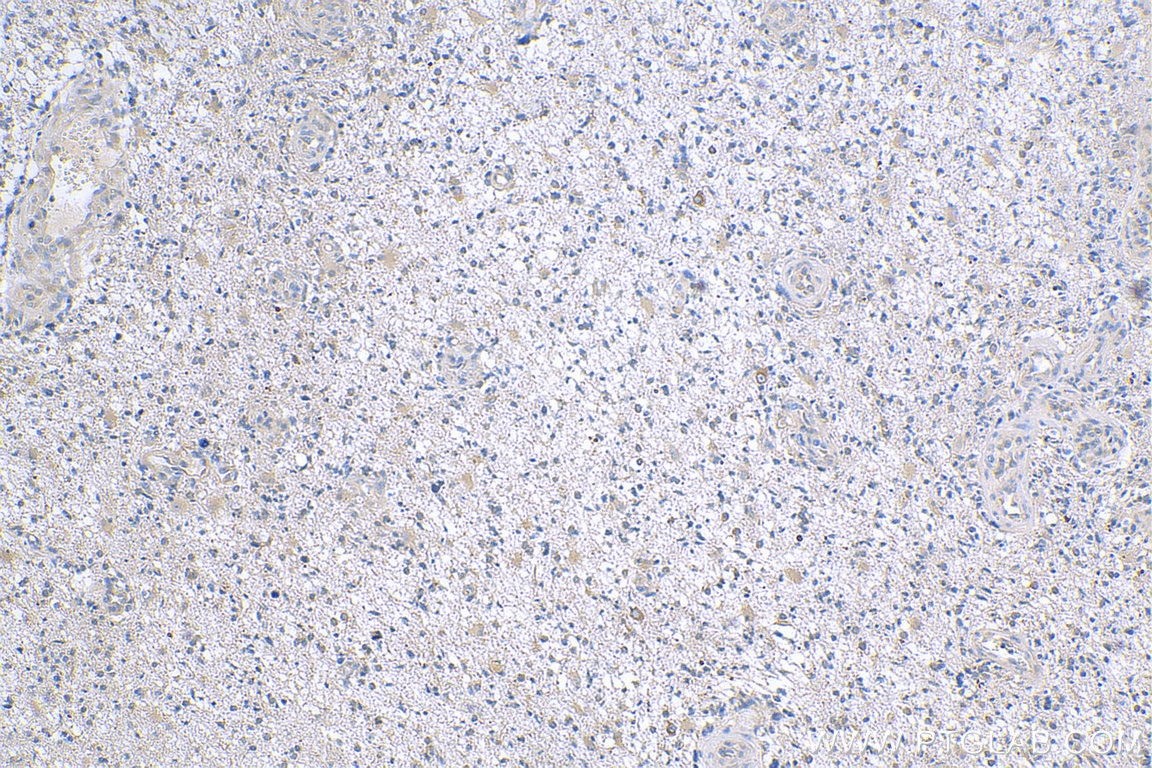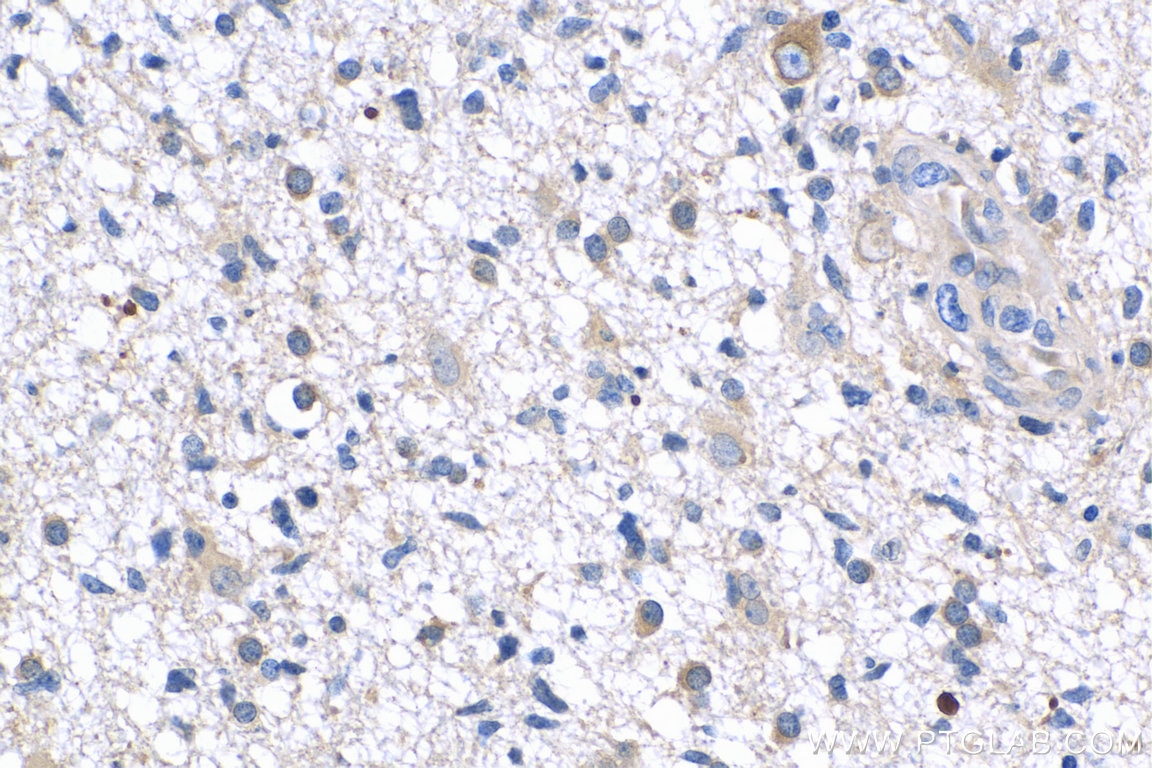- Phare
- Validé par KD/KO
Anticorps Monoclonal anti-APP
APP Monoclonal Antibody for WB, IHC, Indirect ELISA
Hôte / Isotype
Mouse / IgG2a
Réactivité testée
Humain, Lapin, porc, rat
Applications
WB, IHC, Indirect ELISA
Conjugaison
Non conjugué
CloneNo.
5C2A1
N° de cat : 60342-1-PBS
Synonymes
Galerie de données de validation
Informations sur le produit
60342-1-PBS cible APP dans les applications de WB, IHC, Indirect ELISA et montre une réactivité avec des échantillons Humain, Lapin, porc, rat
| Réactivité | Humain, Lapin, porc, rat |
| Hôte / Isotype | Mouse / IgG2a |
| Clonalité | Monoclonal |
| Type | Anticorps |
| Immunogène | APP Protéine recombinante Ag0769 |
| Nom complet | amyloid beta (A4) precursor protein |
| Masse moléculaire calculée | 87 kDa |
| Poids moléculaire observé | 100 kDa |
| Numéro d’acquisition GenBank | BC004369 |
| Symbole du gène | APP |
| Identification du gène (NCBI) | 351 |
| Conjugaison | Non conjugué |
| Forme | Liquide |
| Méthode de purification | Purification par protéine A |
| Tampon de stockage | PBS only |
| Conditions de stockage | Store at -80°C. 20ul contiennent 0,1% de BSA. |
Informations générales
Aβ derives from APP via proteolytic cleavage by proteases called α-, β- and γ-secretase. The α-secretase cleavage precludes the formation of Aβ, while the β- and γ-cleavages generate APP components with amyloidogenic features. Amyloid beta A4 precursor protein(APP), encoded by APP gene which locate on human chromosome 21q, is a cell surface receptor and performs physiological functions on the surface of neurons relevant to neurite growth, neuronal adhesion and axonogenesis. APP expressed in all fetal tissues and is pronounced in brain, kidney, heart and spleen, but weak in liver. Defects in APP are the cause of Alzheimer disease type 1 (AD1).
